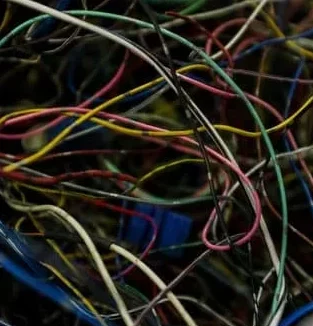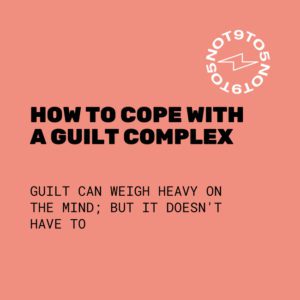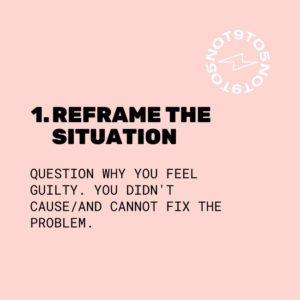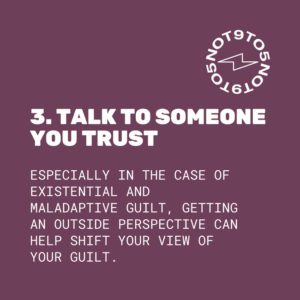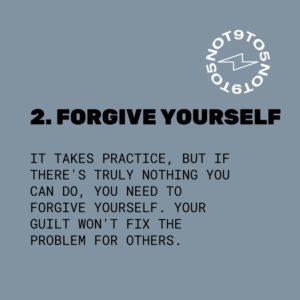Complex Feelings in a Chaotic World
Writer: Lisa Quigley
There has been a lot of global turmoil in these first few months of 2022, only adding to the chaos of the past couple of years. We are living in year three of a pandemic, natural disasters are increasing in frequency and impact, and there have been political uprisings around the globe. Everyone is affected by these momentous events, even if we don’t experience it ‘first-hand.’ There is an incredibly complex web of emotions that comes from collective trauma of world events. For those of us who live in a currently stable society, the extra stress and fear can do a lot to make us feel appreciative of the general safety we are so privileged to have. It can also make us feel incredibly guilty for all that we have, and the ease at which we move about our daily lives whilst other countries’ citizens grapple with war, poverty, and famine. These feelings are completely natural, and have the potential to be useful, and also unproductive and harmful.
For most of us, there is truly very little we can do or change about what’s happening. It’s not always possible to directly affect the situation, so how do we cope with the feelings of guilt? One of the most important things to remember is to reframe the situation. If you’re feeling guilty for having basic safety and human rights that others are being deprived of, ask yourself, is this something you contributed to? No. Instead of telling yourself “I feel guilty for having things that others don’t” reframe it to “I feel grateful to have the things I do.” You can always volunteer or donate if you have the means to contribute, but your guilt doesn’t hold any benefits. Sometimes, when we feel helpless toward a situation much greater than ourselves, the best thing we can do is practice self-compassion and care.
Feelings of guilt often show up as symptoms similar to anxiety, stress, and depression [1]https://www.hackensackmeridianhealth.org/en/HealthU/2020/05/19/feel-pandemic-guilt-youre-not-alone-heres-how-to-overcome-it. So when we already feel the weight of other stresses in our lives and in the world around us, adding guilt to the mix can exacerbate these issues even further.
Some of these symptoms include changes or inability to sleep, change in appetite, lack of focus, fatigue, lack of interest in activities you previously enjoyed, and feeling disconnected or withdrawn from social interactions [2]https://www.hackensackmeridianhealth.org/en/HealthU/2020/05/19/feel-pandemic-guilt-youre-not-alone-heres-how-to-overcome-it. There is a wide variety of ways to manage and cope with contradictory emotions and feelings of guilt, which may be different for everyone.
A helpful first step is to gain awareness of our feelings. Once we become aware of how and what we feel, we can better understand it to create a path forward. Remind yourself that many of these reactions are completely normal under our current circumstances.
One of the most challenging but relieving exercises to practice is radical acceptance. To accept the things that we can’t change allows us to more genuinely and wholeheartedly embrace the things that we can. If we have no control over a situation, then dwelling and stressing about it only makes us feel more pain without any possibility for resolution. To accept uncertainty and lack of control is to relieve yourself of this otherwise ceaseless burden. Paradoxically, being able to accept what we can’t change allows us to be more connected and aware of our present state, in turn allowing for the natural and inevitable change and growth that comes with genuine self knowledge. These concepts aren’t easy, they’re hard af and take time and effort, but are so worth it.
A few other things to help the feelings of guilt and hopelessness are to limit your exposure to the news cycle, talk to family and friends, and to move your body. While it feels important to keep up with the most current events and stay connected, having a news channel on loop can negatively impact our mental health [3]https://www.onemedical.com/blog/healthy-living/news-impacting-your-mental-health/. Constant exposure to this type of information can heighten anxiety and actually detach us from other realities [4]https://www.onemedical.com/blog/healthy-living/news-impacting-your-mental-health/. Staying connected with family and friends, whether it be open conversations about how you’re feeling, or just chatting, can be a huge mood booster, help us gain perspective and remain in the present moment. Making a point to get outside for a walk and breathe of fresh air also helps to boost mood, relieve stress and feel present.
It is important to normalize our ability to hold seemingly contradictory emotions at the same time. This is a natural part of the human experience, yet we have learned somewhere along the way we must ‘choose a side.’ It is this black and white way of thinking that limits our ability to process all of the emotions we feel and accept them for what they are, as they come. Life is not a binary experience.
So, forgive yourself. Be compassionate to yourself. Remind yourself that while the feeling of guilt demonstrates your awareness and empathy toward others, it is in such a way that is still detrimental to your own health and overall unproductive. It’s okay that you feel grateful, it’s okay to continue your usual activities when others can’t. It is okay to embrace your health whilst others are sick. We can hold gratitude for the privilege to walk the streets freely without fear of an explosion. Expressing these feelings to others can help show that you are not alone, provide a different perspective and separate yourself from your thoughts.
It’s okay to be feeling every emotion right now. Heartbroken for the state of the world. Excited for your weekend plans. Scared of what the future might hold. Thankful for the first signs of spring. Guilt for carrying on with your life as normal. Overwhelmed from feeling it all at once.
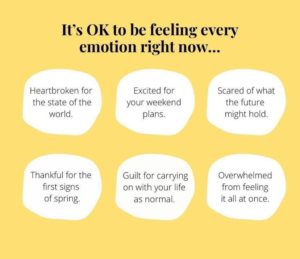
(image source: unknown)
To read more about anxiety and depression, click here.
To read more about the 7 pillars of mental health, click here.
To see more Not 9 to 5 content, check out our Instagram!

